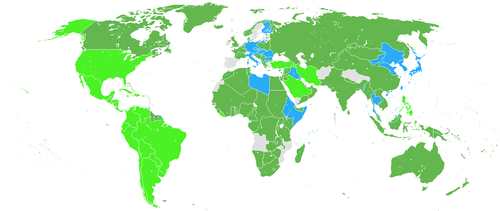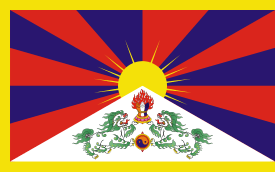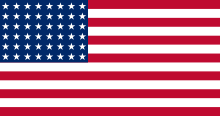Neutral powers during World War II

The neutral powers were countries that remained neutral during World War II. Some of these countries had large colonies abroad or had great economic power. Spain had just been through its civil war, which ended on 1 April 1939 (five months prior to the Invasion of Poland)—a war that involved several countries that subsequently participated in World War II.
During World War II, the neutral powers took no official side, hoping to avoid attack. However, Portugal, Sweden, Colombia, and Switzerland all helped the Allied Powers by supplying "voluntary" brigades to the United Kingdom, while Spain avoided the Allies in favor of the Axis. Ireland generally favoured the Allied side, as with the United States. The United States remained neutral until December 8, 1941, a day following the sneak attack by Japan on Pearl Harbor.
The Lateran Treaty between Italy and the Vatican, signed in 1929, required that the Pope maintain "perpetual neutrality in international relations"—making the Vatican City a neutral state.
Several countries suffered invasions in spite of their efforts to be neutral. These included Nazi Germany's invasion of Denmark and Norway on 9 April 1940—then Belgium, the Netherlands, and Luxembourg on 10 May 1940. On the same day, 10 May 1940, the British invaded Iceland and established an occupying force (subsequently replaced by the then-neutral United States). In the eastern Baltic, the Soviet Union invaded Lithuania, Latvia and Estonia on 14 June 1940. In the Balkans, the Italo-Greek War began on 28 October 1940 and Yugoslavia was invaded in April 1941. Iran was also attacked and occupied by Britain and the Soviet Union in August 1941.
See also the histories of Afghanistan, Andorra, Guatemala, Liechtenstein, Saudi Arabia and Yemen during this period.
Continent
Europe
Ireland
 Ireland - The policy of Irish neutrality during World War II was adopted by the Oireachtas (parliament of Ireland) at the instigation of Éamon de Valera, the Taoiseach (head of government) upon the outbreak of hostilities in Europe. It was maintained throughout the conflict, in spite of several German air raids (understood to be by aircraft that missed their intended targets in Britain or Northern Ireland) and attacks on Ireland's shipping fleet by Allies and Axis alike. De Valera refrained from joining either the Allies or Axis powers.
Ireland - The policy of Irish neutrality during World War II was adopted by the Oireachtas (parliament of Ireland) at the instigation of Éamon de Valera, the Taoiseach (head of government) upon the outbreak of hostilities in Europe. It was maintained throughout the conflict, in spite of several German air raids (understood to be by aircraft that missed their intended targets in Britain or Northern Ireland) and attacks on Ireland's shipping fleet by Allies and Axis alike. De Valera refrained from joining either the Allies or Axis powers.
Portugal
 Portugal - Portugal was officially neutral during the World War II. However it maintained a close relationship with the UK, due to the alliance it had for the last six hundred years, which is the longest lasting alliance in history. Portugal continued trading with countries from both sides of the conflict throughout the war. In the second half of the war, it let the Allies use bases in the Azores to fight German submarines. September 1940: Winston Churchill wrote to Salazar, congratulating him on his ability to keep Portugal out of the war, asserting that "as so often before during the many centuries of the Anglo-Portuguese alliance, British and Portuguese interests are identical on this vital question".[1]
Portugal - Portugal was officially neutral during the World War II. However it maintained a close relationship with the UK, due to the alliance it had for the last six hundred years, which is the longest lasting alliance in history. Portugal continued trading with countries from both sides of the conflict throughout the war. In the second half of the war, it let the Allies use bases in the Azores to fight German submarines. September 1940: Winston Churchill wrote to Salazar, congratulating him on his ability to keep Portugal out of the war, asserting that "as so often before during the many centuries of the Anglo-Portuguese alliance, British and Portuguese interests are identical on this vital question".[1]
Colonies of Portugal:
 Angola
Angola  Cape Verde
Cape Verde Portuguese Guinea
Portuguese Guinea Portuguese India
Portuguese India Macau
Macau Mozambique
Mozambique São Tomé and Príncipe
São Tomé and Príncipe Portuguese Timor (Occupied by Japan from 1942 to 1944)
Portuguese Timor (Occupied by Japan from 1942 to 1944)
Spain
.svg.png) Spain - Franco sent the Blue Division to fight for the Axis on the Eastern Front.
Spain - Franco sent the Blue Division to fight for the Axis on the Eastern Front.
Sweden
 Sweden - The Swedish government supported Finland during the Winter War. During the Liberation of Finnmark it sent Norwegian "police" troops over the border to link up with Allied forces. At the end of the war it was preparing to invade Norway and Denmark with the Allies should the occupying Wehrmacht forces refuse to accept a general German armistice.
Sweden - The Swedish government supported Finland during the Winter War. During the Liberation of Finnmark it sent Norwegian "police" troops over the border to link up with Allied forces. At the end of the war it was preparing to invade Norway and Denmark with the Allies should the occupying Wehrmacht forces refuse to accept a general German armistice.
Switzerland
 Switzerland - Switzerland maintained its neutrality so as to protect its own banking interests from plunder by the Axis. It was also dependent on German coal with 10 million tons imported during the war making up 41% of Swiss energy supplies. Often, Swiss soldiers opened fire on Axis bombers invading their airspace. On several occasions, Switzerland also shot down Allied planes. Throughout the war, cities in Switzerland were "accidentally" bombed by both Axis and Allied airplanes. Hitler did indeed plan to invade Switzerland, but Switzerland had formed complex fortifications and amassed tens of thousands of soldiers in the mountains to thwart any Axis invasion. Because of the extreme mountainous conditions in Switzerland, Hitler decided to bombard the United Kingdom rather than engage in a costly war with Switzerland.
Switzerland - Switzerland maintained its neutrality so as to protect its own banking interests from plunder by the Axis. It was also dependent on German coal with 10 million tons imported during the war making up 41% of Swiss energy supplies. Often, Swiss soldiers opened fire on Axis bombers invading their airspace. On several occasions, Switzerland also shot down Allied planes. Throughout the war, cities in Switzerland were "accidentally" bombed by both Axis and Allied airplanes. Hitler did indeed plan to invade Switzerland, but Switzerland had formed complex fortifications and amassed tens of thousands of soldiers in the mountains to thwart any Axis invasion. Because of the extreme mountainous conditions in Switzerland, Hitler decided to bombard the United Kingdom rather than engage in a costly war with Switzerland.
Microstates
Andorra
Liechtenstein
San Marino
 San Marino (briefly occupied by Germany, 17–20 September 1944; declared war on Germany, 21 September 1944)
San Marino (briefly occupied by Germany, 17–20 September 1944; declared war on Germany, 21 September 1944)
Vatican City
Asia
Afghanistan
.svg.png) Afghanistan remained neutral throughout World War II
Afghanistan remained neutral throughout World War II
Saudi Arabia
-
 Saudi Arabia severed diplomatic contacts with Germany on 11 September 1939, and with Japan in October 1941. Although officially neutral, the Saudis provided the Allies with large supplies of oil. Diplomatic relations with the United States were established in 1943. King Abdul Aziz Al-Saud was a personal friend of Franklin D. Roosevelt. The Americans were then allowed to build an air force base near Dhahran.[2] Saudi Arabia declared war on Germany on 28 February 1945 and Japan on 1 April 1945, but no military actions resulted from the declaration.
Saudi Arabia severed diplomatic contacts with Germany on 11 September 1939, and with Japan in October 1941. Although officially neutral, the Saudis provided the Allies with large supplies of oil. Diplomatic relations with the United States were established in 1943. King Abdul Aziz Al-Saud was a personal friend of Franklin D. Roosevelt. The Americans were then allowed to build an air force base near Dhahran.[2] Saudi Arabia declared war on Germany on 28 February 1945 and Japan on 1 April 1945, but no military actions resulted from the declaration.
Tibet
 Tibet (unrecognised; claimed by China but de facto independent), remained neutral throughout World War II
Tibet (unrecognised; claimed by China but de facto independent), remained neutral throughout World War II
Turkey
 Turkey was neutral until several months before the end of the war, at which point it joined the Allies. Prior to the outbreak of war, Turkey signed a Mutual Aid Pact with France and Britain in 1939. After the German invasion of France, however, Turkey remained neutral, relying on a clause excusing them if military action might bring conflict with the USSR, which, after the division of Poland, Turkey feared. Then, in June, 1941, after neighbouring Bulgaria joined the Axis and allowed Germany to move troops through to invade Yugoslavia and Greece, Turkey signed a non-aggression pact with Germany. Turkey was an important producer of chromite — a key ingredient in the manufacture of stainless steel and refractory brick — to which the Germans had limited access. Sale of chromite to Germany or to the Allies (who had access to other sources, and mainly bought Turkish chromite in order to preclude its sale to Germany) was the key issue in Turkey's negotiations with both sides. Turkey halted its sales to Germany in April 1944 and broke off relations in August. In February 1945, after the Allies made its invitation to the inaugural meeting of the United Nations (along with the invitations of several other nations) conditional on full belligerency, Turkey declared war on the Axis powers, but no Turkish troops ever saw combat.
Turkey was neutral until several months before the end of the war, at which point it joined the Allies. Prior to the outbreak of war, Turkey signed a Mutual Aid Pact with France and Britain in 1939. After the German invasion of France, however, Turkey remained neutral, relying on a clause excusing them if military action might bring conflict with the USSR, which, after the division of Poland, Turkey feared. Then, in June, 1941, after neighbouring Bulgaria joined the Axis and allowed Germany to move troops through to invade Yugoslavia and Greece, Turkey signed a non-aggression pact with Germany. Turkey was an important producer of chromite — a key ingredient in the manufacture of stainless steel and refractory brick — to which the Germans had limited access. Sale of chromite to Germany or to the Allies (who had access to other sources, and mainly bought Turkish chromite in order to preclude its sale to Germany) was the key issue in Turkey's negotiations with both sides. Turkey halted its sales to Germany in April 1944 and broke off relations in August. In February 1945, after the Allies made its invitation to the inaugural meeting of the United Nations (along with the invitations of several other nations) conditional on full belligerency, Turkey declared war on the Axis powers, but no Turkish troops ever saw combat.
Yemen
 Yemen remained neutral throughout World War II
Yemen remained neutral throughout World War II
Americas
Argentina
-
 Argentina was ruled during the period of World War II by a series of nationalist governments and dictatorial military juntas. Neutralist feelings prevailed in the military, which saw the war as a potential source of economic benefit for the country, by exporting supplies and agricultural products to both sides of the conflict. The government of Edelmiro Julián Farrell eventually caved in to international pressure, and declared war on Germany and Japan, one month before the war was over in Europe and four months before it was over in Asia, on 27 March 1945. See also Argentina during World War II.
Argentina was ruled during the period of World War II by a series of nationalist governments and dictatorial military juntas. Neutralist feelings prevailed in the military, which saw the war as a potential source of economic benefit for the country, by exporting supplies and agricultural products to both sides of the conflict. The government of Edelmiro Julián Farrell eventually caved in to international pressure, and declared war on Germany and Japan, one month before the war was over in Europe and four months before it was over in Asia, on 27 March 1945. See also Argentina during World War II.
Chile
-
 Chile initially chose to remain neutral in the war, having close trading links with Germany. Later in the war, however, Chile distanced itself from the Axis powers, and the Chilean government took steps to dismiss pro-German military officers. Relations with Axis countries were broken in 1943, and on 11 April 1945, Chile declared war on Japan, being the last nation to join the war.
Chile initially chose to remain neutral in the war, having close trading links with Germany. Later in the war, however, Chile distanced itself from the Axis powers, and the Chilean government took steps to dismiss pro-German military officers. Relations with Axis countries were broken in 1943, and on 11 April 1945, Chile declared war on Japan, being the last nation to join the war.
Peru
-
 Peru Declared war on 12 February 1945.
Peru Declared war on 12 February 1945.
United States
 United States - The United States remained neutral following the outbreak of World War II. However, the sudden defeat of France by Nazi Germany in spring 1940 caused the nation to begin to greatly grow its armed forces, including the first peacetime draft. On December 29, President Franklin D. Roosevelt declared that the U.S. was to be the "Arsenal of Democracy" for the Allied Powers. After the German invasion of the Soviet Union in June 1941, America began sending Lend Lease aid to the Soviet Union as well as Britain and China. The U.S. still remained neutral, as it stayed out of actual fighting until December 8, 1941, when it declared war on Japan in response to that country's surprise attack on Pearl Harbor the previous day.
United States - The United States remained neutral following the outbreak of World War II. However, the sudden defeat of France by Nazi Germany in spring 1940 caused the nation to begin to greatly grow its armed forces, including the first peacetime draft. On December 29, President Franklin D. Roosevelt declared that the U.S. was to be the "Arsenal of Democracy" for the Allied Powers. After the German invasion of the Soviet Union in June 1941, America began sending Lend Lease aid to the Soviet Union as well as Britain and China. The U.S. still remained neutral, as it stayed out of actual fighting until December 8, 1941, when it declared war on Japan in response to that country's surprise attack on Pearl Harbor the previous day.
Venezuela
-
 Venezuela Declared war on 15 February 1945.
Venezuela Declared war on 15 February 1945.
Conclusion
Portugal, Spain, Sweden and Switzerland held to the concept of armed neutrality, and continuously amassed soldiers to defend their nation's sovereignty from potential invasion. Thus, they maintained the right to become belligerent if attacked while in a state of neutrality. The concept of neutrality in war is narrowly defined and puts specific constraints on the neutral party in return for the internationally recognized right to remain neutral. A wider concept is that of non-belligerence. The basic international law covering neutral territories is the Second Hague Convention. It is important to note that a neutral country takes no side in a war between other parties, and in return hopes to avoid being attacked by either of them. A neutralist policy aims at neutrality in case of an armed conflict that could involve the party in question. A neutralist is an advocate of neutrality in international affairs. The concept of neutrality in conflicts is distinct from non-alignment, i.e., the willful desistance from military alliances in order to preserve neutrality in case of war, and perhaps with the hope of preventing a war altogether.
See also
- Participants in World War II
- Allies of World War II
- Axis powers
- Declarations of war during World War II
- Latin America during World War II
References
- Karsh, E. "Neutrality and Small States." 1989.
- Gabriel, J. M. "The American Conception of Neutrality After 1941." 1989.
- http://www.encyclopedia.com/doc/1E1-neutral.html